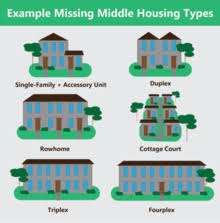
You might have come here because you’ve got big dreams of owning property to rent out. Indeed, with the right property and strategy, becoming a landlord could be beneficial to one’s financial circumstances.
As you go forth with finding real estate you are keen on investing in, you must also know that this financial move entitles you to numerous benefits. Read on to discover what real estate investments can do for you as a property owner or a landlord.
Real Estate Can Give You Access to Loans
Using debt to acquire real estate can be advantageous, especially in cases involving many properties. One property can be exchanged for another. If property values continue to climb, an investor’s overall financial outlay may decrease as they purchase more residences.
Real Estate Can Give You Positive Cash Flow
Positive cash flow is achieved when the quantity of rental income received exceeds the amount of carrying costs. Property taxes, debt payments, insurance, capital improvements, repairs and maintenance, utilities, association dues, and management fees are all included. Many people who are financially independent live off of rental income.
Real Estate Can Increase Your Net Worth

The mortgage principal must be considered when determining the cash-carrying costs of an investment property. This is not considered an expense for rental property because it enhances the property’s equity. This is the scheme for investing in real estate dividends. Furthermore, the real estate markets and property values must thrive. The growth in value of an item, like stocks and shares, can only be realized when it is sold.
Real Estate Allows You to Claim Tax Benefits
-
Tax Breaks
Tax breaks are available to mitigate the taxable nature of rental income. Property taxes, mortgage interest, insurance, repairs and upkeep, utility expenses, and management fees may all have an impact on taxable rental revenue.
-
Qualified Business Income (QBI)
Rental property owners will benefit from the Tax Cuts and Jobs Act. It is likely that the rental operation will qualify as a qualifying business income, which will be taxed at a lower rate than normal income. Despite the difficulties of the QBI application and computations, a large proportion of self-managed residential landlords qualify for this.
-
Mortgage Interest Deductions
The maximum amount that can be deducted for mortgage interest is the purchase price of the property. When the value of a property rises, you can refinance it to gain access to extra equity, and the interest on the loan remains tax deductible. A vast number of investors use this method to extract equity from rental properties and build their businesses.
-
Limited Passive Losses
The “passive loss restriction” means that rental losses for taxpayers in higher tax rates do not count toward lowering current year ordinary taxable income; nonetheless, the benefits are never forfeited. These losses can be carried forward indefinitely, which reduces future taxable rental income as well as the gain (or loss) on the sale of the property.
-
Depreciation Deductions
Depreciation deductions can be used to write off the initial costs of construction and modifications. Because depreciation is a tax advantage rather than a cash outlay, many landlords have positive cash flow investments despite reporting tax losses. This is due to the fact that depreciation is a taxable gain.
Conclusion
Now, you may see that real estate investments are made for the long term, and patience is essential in this attempt. This also means that you shouldn’t just go out there and buy a piece of land. It’s all about being strategic with your time and money.
Despite the fact that real estate is cyclical, the housing market tends to mimic interest rates, and being a landlord is simply not for everyone. However, it is still worth noting that property owners can increase wealth and income flow for any skilled investor.
Are you interested in investing in long-term rentals or short-term rentals? Evergreen Investments is here to show you how you can achieve financial freedom through the right investments. Contact us today to learn about our services!




0 Comments